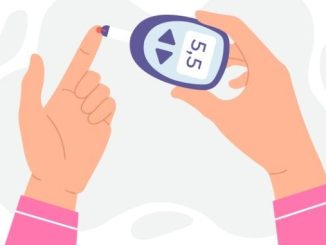
Zaytun Ratansi, health coach at non-profit Living Well, has over 13 years of experience in treating type 2 diabetes. She has helped over 3,000 diabetic patients take charge of their diagnosis through assisting them to make lifestyle changes. In this article, Zaytun summarises her approach to this long term condition
‘You’re at serious risk of developing type 2 diabetes.’
‘Okay … what does that mean?’
‘If you don’t do something about it, you will develop kidney failure, nerve damage and be susceptible to a stroke.’
‘Oh.’
A growing epidemic
12.3 million people in the UK are at risk of developing type 2 diabetes, with one person being diagnosed every three minutes. The epidemic is growing, people are getting unhealthier, and they don’t even realise it. Why? Because, unlike other diagnoses, chronic illnesses tend to slip under the radar. Every day I witness the sheer shock and confusion on unexpecting faces when my patients find out their risk.
I first got involved in the treatment of type 2 diabetes in the early 2000s when, at fifty years old, I moved from Tanzania to the UK. At that time there were a number of jobs being advertised by NHS England due to an increase in reported obesity and type 2 diabetes diagnoses. I had no healthcare experience, and this was definitely not trodden ground for immigrants, but I was excited about making a difference in the lives of people who were hosting me in their country. I immediately enrolled in a health coach training programme and never looked back.
Through the training sessions we learned how the chronic conditions’ epidemic was gaining momentum and that the key cause was, unsurprisingly, unhealthy lifestyle choices. I remember naively wondering how it could be possible that a country could be plagued by an epidemic whose causes were predominantly self-inflicted?
What needs to happen?
Since 1996 the number of people diagnosed with diabetes in the UK has risen from 1.4 million to 3.5 million. Unfortunately, the future is just as bleak, with prevalence expected to rise to 5 million by 2025. If this isn’t a cry for a change in approach, then I don’t know what is.
In the past 14 years, what has become obvious to me is that the real reason is a lack of awareness and education surrounding chronic illnesses and their main causes.
Type 2 diabetes is often brought on by unhealthy and sedentary lifestyles. Funnily enough, most of the patients who have walked through my door are not aware of this. I can’t recall the number of times the diagnosis was met with, ‘Okay, so what medication do I have to take?’
To reverse the rising numbers, the root cause needs to be tackled. Greater efforts need to be placed on educating the public about making healthier choices when it comes to their lifestyle, including having a balanced diet and incorporating exercise on a weekly basis. The importance of this can’t be ignored. We need to look at how to drive behaviour change to encourage healthier lifestyles, and we need to do it now.
Change ahead – living well, taking control
Ultimately, there is only one solution – a lifestyle change. It’s a major mental challenge, but today, with the right help and support, there is a new optimism that we can get there.
Today, my current role involves working with ‘living well, taking control’ to deliver the NHS diabetes prevention programme across the UK. The programme sees participants take part in eight group sessions and five 1-1 check-ups, with each week focusing on a new key theme. Five key healthy lifestyle messages are covered, including diet, exercise and positive mental health. I make use of visualisation techniques, aids and demonstrations to raise awareness among participants of the food choices they make every day.
I have seen incredible progress in understanding and treating type 2 diabetes in my lifetime. Today, especially with programmes such as the NHS diabetes prevention programme, we are on the cusp of even more significant advances. Our ultimate goal is to ensure that every patient at risk rolls back their diagnosis and has access to the right support to manage their condition.
I think that, if just one person changes because of my support, and is able to achieve better wellbeing, vitality, quality of life and, possibly, longevity, then it’s all been worth it.
I firmly believe that, working together, we will combat type 2 diabetes.


Be the first to comment